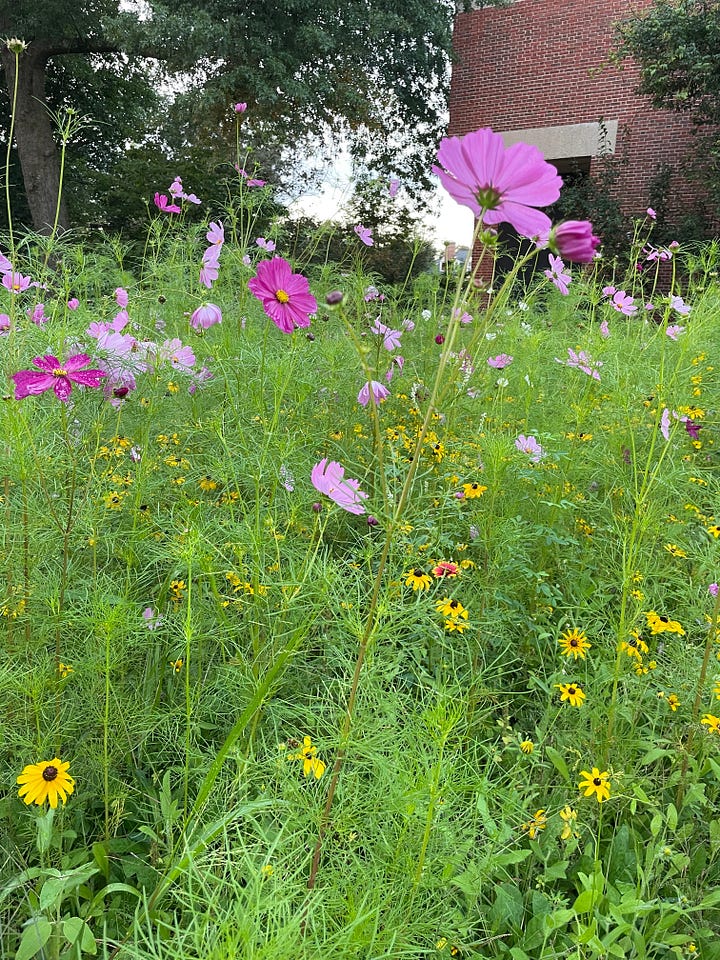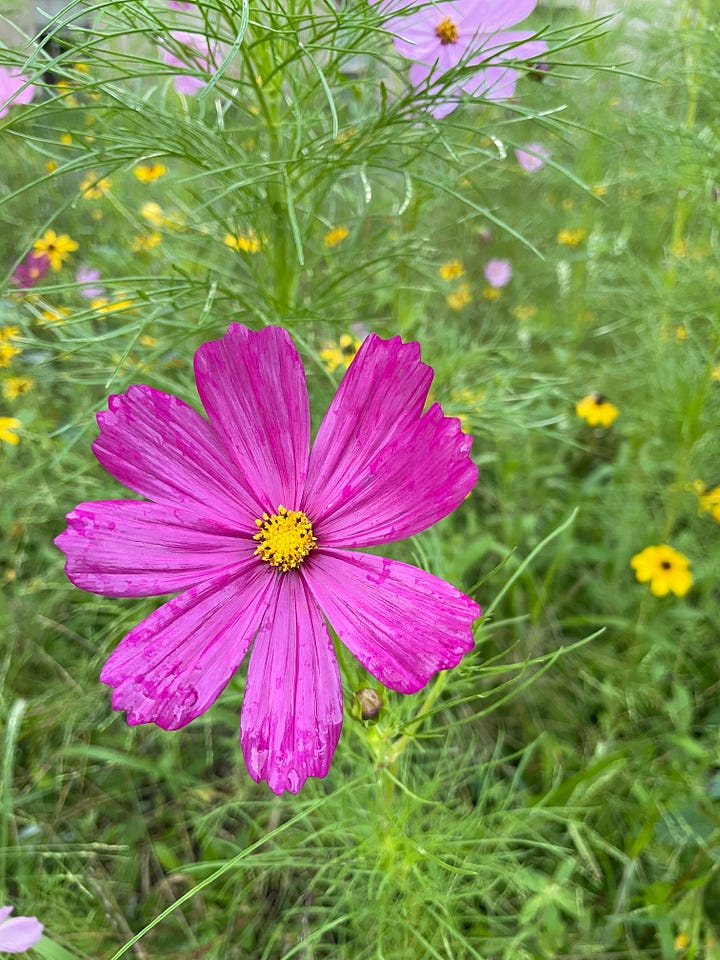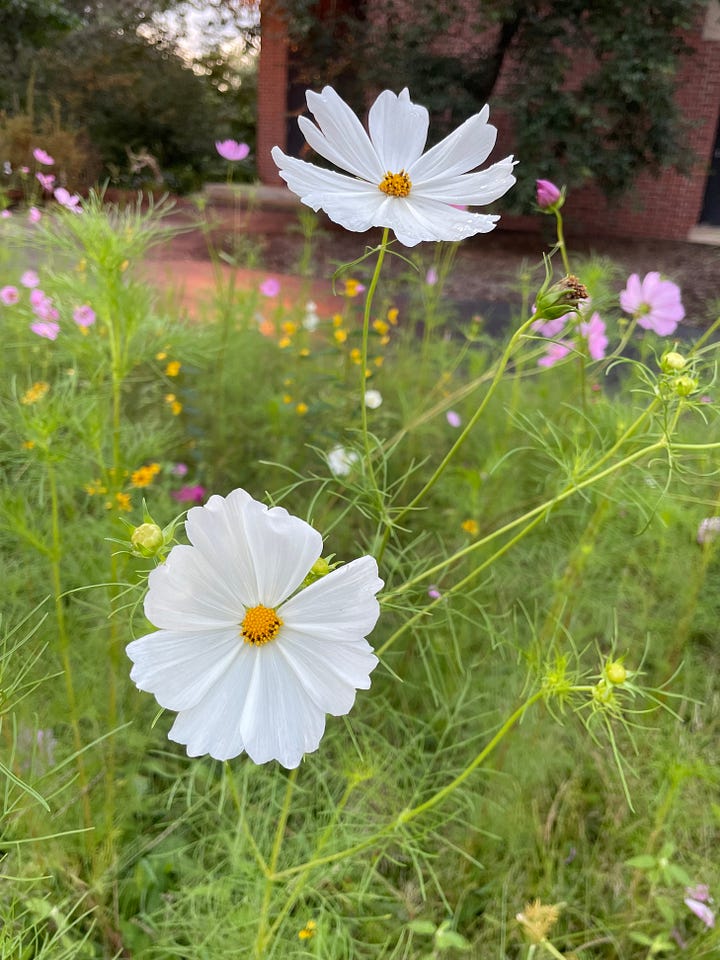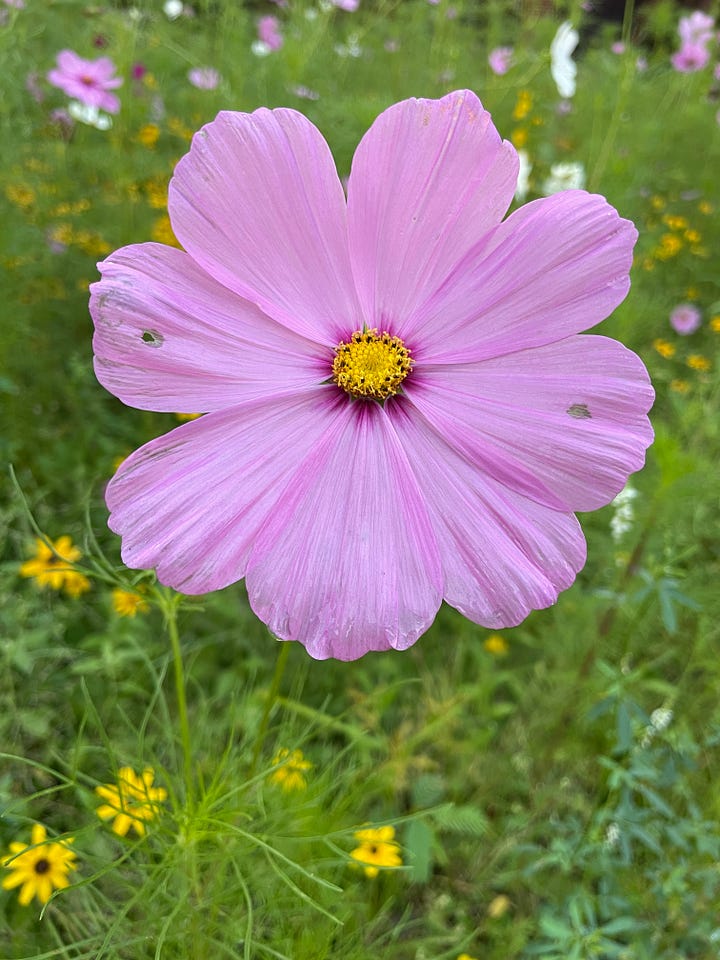There was a time in my life when I couldn’t handle outer space. The vastness of the universe and my infinitesimal place in it overwhelmed me. I hated thinking about how the light I could see from stars was actually emitted thousands of years earlier. I didn’t like knowing that reality wasn’t just what I could perceive in my three dimensional human form at a certain time and place. Instead, reality encompassed scales both larger (space and galaxies) and smaller (microbes and atoms) than I could see with my naked eye, and in looking at the stars, my present seemingly merged with the past of some faraway spot across the universe.
At that time, I was very anxious about the impact I could have on the world, and in particular, my ability to cause harm. A therapist had suggested I suffered from obsessive compulsive disorder (OCD), but I had yet to receive very effective treatment for it, so I remained plagued by distressing thoughts and engaged in compulsions to try to make them go away or minimize them.
For example, during this time, I attended a wedding at a space center where guests were given access to a giant telescope. I worried that just by looking through the telescope I might cause devastation in some other part of the universe (obsession), and thus, it would be better for everyone on Earth and wherever the telescope was focused on if I just avoided looking at all (compulsion).
As a person living with OCD, I have often taken the phrase “better safe than sorry” to the extreme. I’ll believe that just because I can think of something, there’s a possibility it might happen, so in order to eliminate risk, it’s best if I avoid whatever it is or check in with someone else to make sure what I plan to do isn’t going to end in disaster.
In the past few years I have received more effective treatment for OCD (it’s called ERP, exposure and response prevention), and as a result, I have been able to engage more readily with space. I was excited about the launch of the James Webb Space Telescope, and I even follow nasawebb on Instagram so I can see the latest photos. A few years ago I don’t think I could have done this.
One thing I wish more people knew about OCD is that it’s not about a love of orderliness, cleanliness, or perfection, and using the term that way prevents people who do suffer from OCD from being diagnosed. I dealt with OCD symptoms intensely throughout my twenties, but I wasn’t diagnosed as having OCD until I was close to thirty, and even then, it took more time before I received effective treatment.
People who have OCD might clean more than others, but it’s not because they enjoy doing it and it gives them positive satisfaction. More likely, they are trying to prevent some horrible outcome their mind has fixated on like the death of a loved one or planetary collapse. For me, sometimes it’s difficult to clean because I worry I’ll either encounter germs or cleaning chemicals that will linger on me when I go back out into the world and interact with people.
I was not someone who disinfected my groceries during COVID, and I thought people who did do it hadn’t thought everything through thoroughly enough. Because, yes, eliminate germs, but also, no, don’t introduce chemicals. In this way, OCD can be paralyzing because every option seems dangerous, and trying to sort out what’s the “right” thing to do can take up a lot of time that might be spent more enjoyably living life.
Enjoying the cosmos
Despite all my floral pictures, I also have fears around plants. OCD tends to go after the things one cares about most.
Maybe I’ll share that story another day, but for now, I want to offer up a display of cosmos and black-eyed Susans that I enjoyed last summer and fall. The spot on campus where these grew is currently bare. I’m hopeful they’ll return this year.










Wow, that is interesting. I am glad that you have been able to find an effective treatment. I'll keel that in mind for my clients too.